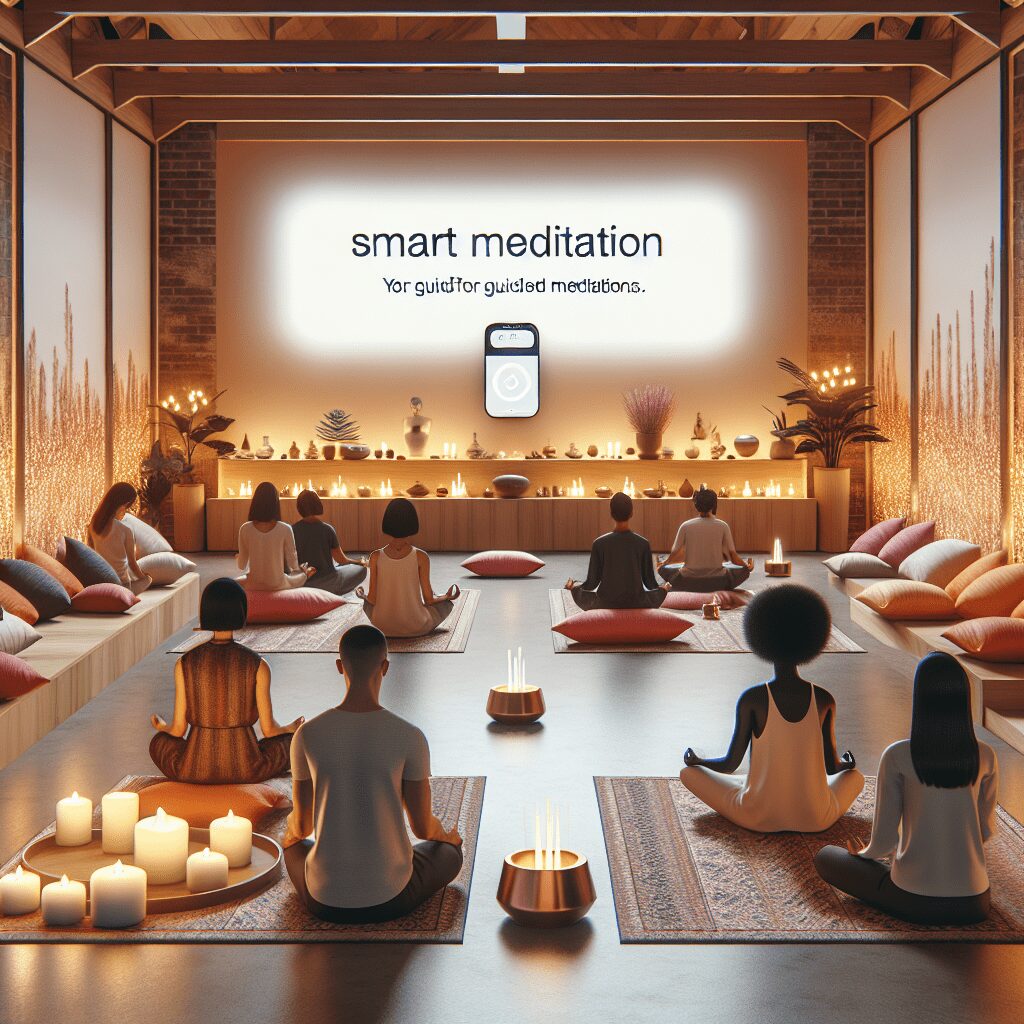
Prioritize your mental well-being daily. Enhance your life by nurturing your mental health with the Smart Meditation app. Break free from stress, alleviate anxiety, and enhance your sleep quality starting today.
How Anxiety Leads To Depression?
Unraveling the Link Between Anxiety and Depression
In the dizzying pace of modern life, where everyone’s racing against the clock, it’s no surprise that folks often find themselves entangled in the gnarly vines of anxiety and depression. These two mental health adversaries, though distinct in nature, tend to tango together more often than not. But, ever wondered how a state of perpetual worry morphs into a profound sense of despair? Let’s dive into this intricate dance and dissect how anxiety paves a rocky road to depression.
The Vicious Cycle: From Jitters to the Doldrums
Anxiety, in its simplest essence, is our body’s natural response to stress. It’s like an internal alarm system that goes off when we’re faced with potential threats. However, when anxiety decides to overstay its welcome, it can start chipping away at one’s mental health, setting the stage for depression to waltz in. Here’s a look at how this transition occurs:
-
Persistent Stress: Imagine your brain as a computer that’s perpetually running high-demand programs. Eventually, it’s going to overheat. Similarly, when anxiety keeps you in a constant state of stress, your brain’s coping mechanisms begin to falter. This relentless pressure can dim your brain’s ability to experience pleasure, laying down the red carpet for depression.
-
Sleep Shenanigans: Ever tried running on fumes? Not fun, right? Anxiety often brings along a troublesome sidekick – insomnia. Skimping on shuteye doesn’t just make you groggy; it messes with your mood and cognitive functions, making the pit of depression seem like a stone’s throw away.
-
Isolation Station: Battling anxiety can feel like you’re constantly wearing armor, ready to deflect potential threats. This state of high alert can be downright exhausting, compelling folks to retreat into their shells. Alas, isolation is fertile ground for depressive thoughts to sprout and take root.
-
Coping Conundrums: Sometimes, in a bid to silence anxiety’s incessant chatter, individuals might reach for not-so-healthy coping mechanisms – think alcohol, substances, or binge-eating. These temporary fixes can spiral into addictive behaviors, dealing a serious blow to one’s self-esteem and amplifying feelings of guilt and worthlessness associated with depression.
Navigating the Treacherous Terrain
Recognizing the interconnectedness of anxiety and depression is pivotal. It’s akin to acknowledging that a storm is brewing, prompting one to seek shelter before it unleashes its fury. Here are a couple of strategies to keep both anxiety and depression at bay:
-
Mindfulness and Meditation: These aren’t just buzzwords; they’re anchors in the tumultuous sea of mental health. Practicing mindfulness encourages living in the moment, helping to diffuse anxiety’s bombarding thoughts. Meditation, on the other hand, can be a serene harbor, allowing one to find calm amidst the chaos.
-
Seeking Professional Help: Sometimes, the bravest thing you can do is to ask for help. Whether it’s therapy, counseling, or medication, professional guidance can be a lighthouse guiding you through the fog of mental health struggles.
-
Building a Support System: Surrounding yourself with empathetic ears and safe spaces can bolster your resilience against anxiety and depression. It’s about knowing you’re not alone, even when your brain tries to convince you otherwise.
To sum it up, navigating the slippery slope from anxiety to depression requires vigilance, awareness, and a hefty dose of self-compassion. Remember, it’s about taking one step at a time, equipped with the right tools and support. So, let’s shift gears from merely surviving to thriving, because you’ve got this.





